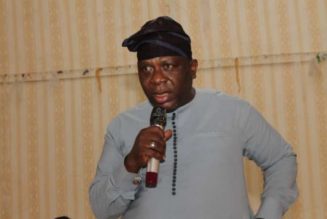Boss Talk
Mike Kuria: CUE CEO on higher education reforms and his vision of quality degrees
Friday June 09 2023
The Commission for University Education CEO, Mike Kuria. ILLUSTRATION | JOSEPH BARASA | NMG
The Commission for University Education (CUE) unveiled Mike Kuria as the new CEO in July last year at a time universities were facing cash flow challenges and duplication of programmes was rife.
He spoke to the Business Daily on the higher education sector reforms and his leadership strategy at the commission.
There has been concern that some programmes being offered in universities are obsolete. How often do you audit academic programmes?
The policy is that every six years, we should review a programme. That means we cannot do an audit of all university programmes at the same time because they were accredited at varied times, meaning their lifespans vary.
That’s why the audits look a bit staggered, not necessarily a comprehensive one go so as to dub it ‘the audit cycle’.
What is CUE doing to tame the duplication of academic programmes in universities?
It’s important to note that universities have the freedom to develop curriculum in their fields of specialisation and secondly, there’s competition in this country among private and public universities.
For those programmes that are already accredited, there’s not much we can do aside from auditing to ensure they are still being offered in quality.
However, going forward, we will question the added value that a programme brings to the table. What is innovative about it? What’s unique about it? All this in a bid to make the institutions carve a niche for themselves.
We may not necessarily do that by closing down programmes but by encouraging quality so that standards go higher.
The first class of the competency-based curriculum (CBC) is expected in universities in 2029. What is the state of curriculum review to ensure it is aligning with the CBC?
Three things are to be considered here; the curriculum that is preparing people for CBC, manner of teaching and the learning modalities.
We asked for a budget and are glad that we were given part of it. So our first focus will be to get better education programmes, which is what we consider more urgent.
Then we can start preparing teachers for CBC, and afterwards do a review of the curriculum for the other programmes.
The review has to be in terms of content, it has to be in the way teaching is done and also the way students learn. Since CBC is more practical-oriented, the students will come trained with different expectations.
For instance, it would bore them to death if a lecturer speaks the entire session non-stop.
They want things digitised and to be allowed to use digital devices in class. We need to get ready for how to work with technology and not against technology.
What practical things has CUE done to be ready for these learners?
We have drawn up a plan which we have since submitted to the Presidential Working Party on Education Reforms.
The second step was to find a budget, which we have. The third is to put mechanisms in place here.
So towards the end of this year, we will start holding workshops with universities targeting directors or deans of schools of education in the universities that are part of the education programmes.
Note that CUE does not develop the curriculum for universities. That’s the purview of individual institutions. Ours is to develop the standards and the guidance for the programmes.
We have begun developing some of them. For example, now we have the online and distance education standards and have actually accredited a number of institutions to offer it on their digital infrastructure, including USIU, Daystar, Nazarene and St Paul University.
There are concerns about disproportionate staff ratios in universities where academic staff are fewer compared to the non-teaching staff, yet the core business of the institutions is teaching, research and related services. What reforms are there to rectify this?
The student/teacher ratios are set by Unesco. CUE has recommended ratios but we don’t usually meet them because we do not have enough people who are trained in certain areas.
For example, Kenya has a paltry 10,000 PhD holders for the 70+ universities and this is very low. If, however, the student/lecturer ratio in a university is too low, CUE can recommend closure.
University dons have perennially threatened to down tools over unsuccessful CBA negotiations. What’s your take on salaries for university staff?
CUE doesn’t influence how much universities pay their staff because we don’t pay them. If you ask us, we would say give them a lot of money and pay them very well to motivate them.
For us quality is nice money, quality is not free. Someone said there is no free lunch, and especially the quality, there’s no free lunch.
So we would say give them money, but that money also be used prudently for purposes of improving the standards in the university.
What specific proposals has CUE made to the Presidential Working Party on Education Reforms?
We made quite a number of recommendations that even include revisiting some of the laws that we have in this country with reference to higher education.
They include the fact that we need to find a sustainable funding mechanism for universities. We need to focus on areas like research in higher education.
Areas of strategic focus while at the helm of CUE?
I summarise it into practice, ownership, automation and regional integration. Practice, such that we shift from talking to doing quality; ownership where the universities own the idea of pursuing excellence in education; automation, where technology is used to teach, learn, document and make decisions that are data-driven.
For regional integration, I look forward to having more foreign students preferring to come study in Kenya because of the quality of our programmes.









